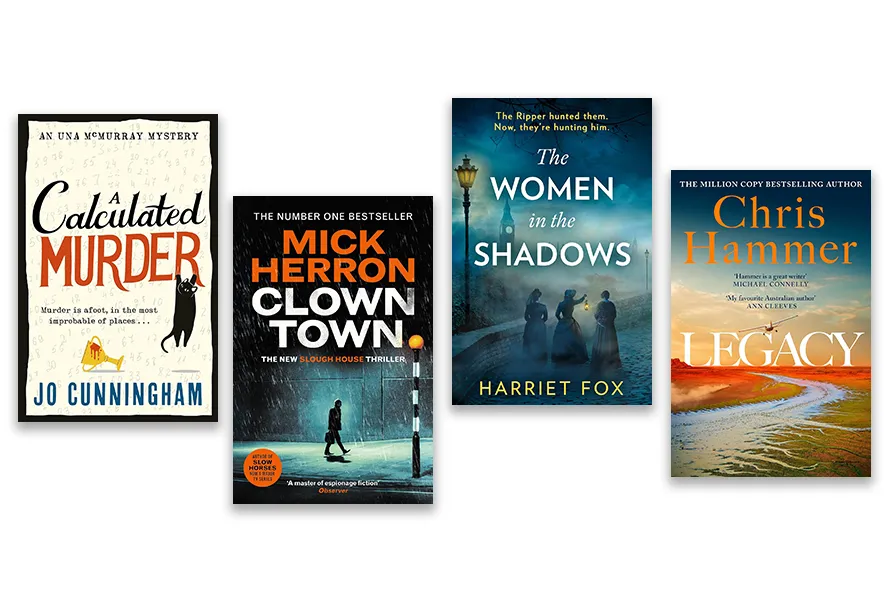TONY BURKE speaks to Gambian kora player SUNTOU SUSSO
Cat show killer, avenging the pawns, women hunt the Ripper, and running dry in the outback


UNA the anxious actuary is back, in A Calculated Murder by Jo Cunningham (Constable, £10.99). The insurance company she works for has her investigating whether keeping a pet increases life expectancy. Her first impressions of the Balham cat show fraternity are unhelpful to the cause: its fanatically committed members seem to be undergoing a statistically unlikely rate of fatal accidents.
Una’s not too confident with people, but she can spot a dodgy pattern in numbers a mile away. And when she does, she has to do something about it.
With its combination of daft hobbyists and even dafter office politics, this second in the series provides a beguilingly relaxing read in a jittery world.
The golden rule of modern spy fiction is that secret agents spend most of their time fighting their own side, only occasionally glancing at the formal enemy. In Clown Town by Mick Herron (Baskerville, £22), the ninth book in the Slow Horses series, elements in MI5 are at war with other sections of the Establishment, and none of the combatants cares who gets killed in the drive-bys.
They’ve foolishly forgotten the sentimental core of this genre: that the anti-hero will always avenge “his joes” when they are treated as disposable pawns.
Of course, it’s the unrivalled humour that makes the Slow Horses so widely loved, far beyond the usual audience for espionage stories, in its mixture of Rabelais, Derek and Clive, Alan Coren and a kind of overornate Dickensian authorial voice which might be a parody except that it sometimes brings an unexpected lump to the throat. A description of Keir Starmer’s instantly catastrophic government as “hitting the ground runny” will stay with me long after we’ve all forgotten the creep who inspired it.
Jack the Ripper is hunted through the East End by a cleaner at the cop shop, a private investigator who usually deals with divorces, and the wife of the detective inspector in charge of the case, in Harriet Fox’s The Women in the Shadows (HQ, £9.99). They’re convinced they can do better than the men, not least because many of those men aren’t that bothered about street women getting killed.
The entertainment industry that surrounds historical horrors, such as the Whitechapel killer or the Titanic, always leaves me feeling uneasy. Apart from anything, how soon is too soon to be a self-declared “fan” of a real-life tragedy? A hundred years; a hundred days? But that aside, this is certainly a dramatic and unpredictable feminist thriller that vividly recreates Victorian London.
At Port Paroo on the Queensland/New South Wales border there’s no rain — just occasional floods that allow the graziers to keep going for a little longer. In Chris Hammer’s latest Martin Scarsden adventure, Legacy (Wildfire, £20), water theft by diverting the flood’s flow is the worst crime imaginable. Unless you count murder.
An absorbing epic about land, love and revenge, this story of innocents caught up in the clash of dynasties may be Hammer’s best yet.










